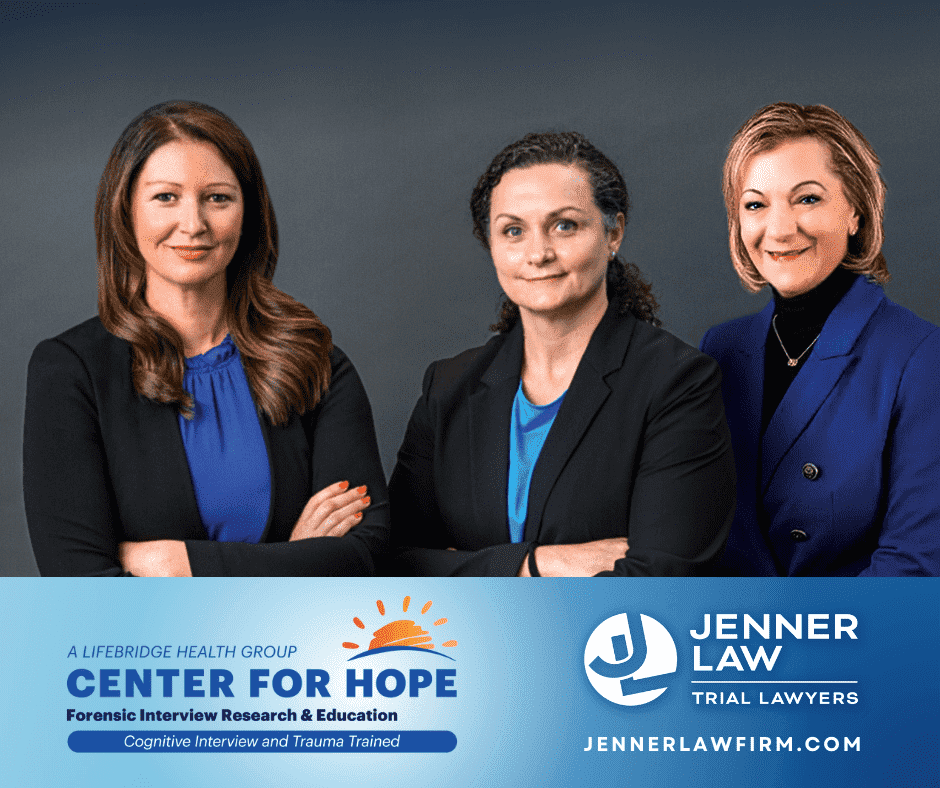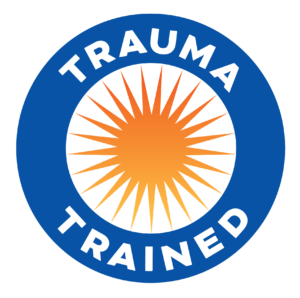
In the complex world of representing survivors of sexual abuse, a lawyer’s role transcends mere courtroom advocacy. It involves a profound understanding of clients’ nuanced needs and experiences. A trauma-informed lawyer possesses a deep comprehension of how past traumatic experiences can significantly impact a person’s interaction with the legal system. Including sensitive cases like therapist abuse and clergy sexual abuse, Jenner Law is experienced in navigating complex legal matters with compassion and expertise. This is why our team recognized the significance of completing a training program like this, ensuring we can better support our clients with trauma-informed legal practice.
The essence of trauma informed lawyering: Do no further harm. This is our goal.
Leading the charge in training professionals for trauma is the Center for Hope, a dedicated organization committed to training professionals, youth-serving organizations, caregivers, and community members in trauma-informed approaches. Through its comprehensive training programs, the Center empowers participants with the tools and insights needed to support and safeguard individuals in need. With a global reach, the Center for Hope indirectly touches the lives of tens of thousands of people each year, fostering a culture of empathy and understanding.
One notable initiative within the legal community is the integration of trauma-informed practices by law firms. Recognizing the profound implications of trauma on their clients’ well-being, Jenner Law took proactive steps to ensure that our legal team was equipped with the necessary skills and knowledge. As part of this commitment, two lawyers and our lead sex abuse paralegal underwent intensive cognitive interview and trauma training with the Center for Hope.

What exactly does it mean to be a trauma-informed lawyer?
Fundamentally, it entails a holistic approach to legal representation that acknowledges the prevalence and impact of trauma. Trauma can manifest in various forms, ranging from interpersonal violence and abuse to natural disasters and systemic injustices. As such, trauma-informed lawyers strive to create a safe and supportive environment for their clients, fostering trust and collaboration throughout the legal process.
For a free legal consultation, call,
(888) 585-2188
Key principles of trauma-informed legal practice include:
- Safety: Prioritizing physical and emotional safety is paramount. Trauma-informed lawyers ensure that their clients feel secure and respected, free from intimidation or re-traumatization.
- Trustworthiness and Transparency: Building trust through open communication and transparency helps establish a strong attorney-client relationship. Clients are empowered to make informed decisions about their legal matters.
- Empowerment and Collaboration: Trauma-informed lawyers recognize the agency of their clients and actively involve them in decision-making processes. Collaboration is central to achieving positive outcomes while honoring clients’ autonomy and dignity.
- Cultural Sensitivity and Responsiveness: Understanding the intersectionality of trauma and cultural identity is crucial. Trauma-informed lawyers demonstrate cultural humility and adapt their approach to meet the unique needs of diverse clients.
By embracing these principles, our trauma-informed lawyers can effectively navigate the complexities of legal proceedings while mitigating the potential triggers and challenges associated with trauma. Moreover, they play a pivotal role in promoting healing and resilience among their clients, facilitating positive outcomes that extend beyond legal resolutions.
The emergence of trauma-informed legal practice represents a profound shift in the legal profession, one that prioritizes compassion, empathy, and human dignity. Through initiatives like the Center for Hope’s training programs and the dedication of law firms like ours, the legal community is poised to embrace a more inclusive and supportive approach to serving clients affected by trauma. As we continue to advocate for justice and equity, let us remember the transformative power of trauma-informed lawyering in promoting healing, empowerment, and social change.

